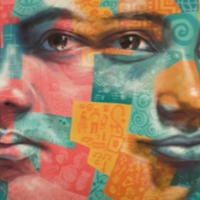
My husband first spoke to me about going abroad. He said: "Many girls are going. It is not so costly. You can earn well. Now we have no children. It is a good time to go." His arguments were good and I was convinced.
It cost 55,000 taka. Collecting the money was a real struggle. My uncle, my father and my husband contributed. We sold two cows and borrowed 12,000 taka against interest.
Josna (a woman from her village who had returned from Kuwait with visas to sell) told me: "Don't be afraid. Everybody is Muslim there. You will live in purdah. You will not have to go out. And I will be there if you have any problem."
Shaju (Josna's son-in-law who manages her business in Bangladesh) took me to the airport and Josna picked me up in Kuwait. She left me in a home. The employer did not have a good reputation. I don't know exactly what he did. His son was a police officer. He was a very bad man. If I did not listen to him, he beat me and withdrew food. Josna left me in a place, which was hell. I was alone. There were no other maids. Sometimes Bangladeshi women visited in the afternoon, stayed the night and left in the morning but I was not allowed to speak to them and I could not speak to anyone else, as I did not understand their language.
I was only thinking how could I return to my country. How could I be absolved from these sins? I was always depressed. Nothing pleased me. I was very young. There were many things I did not understand and all of a sudden I was introduced to that kind of place. I trusted my husband. I believed what he had said and this is why I had agreed to go. Did he not know where he had sent me?
The kind of work I was made to do was not possible for me. I was not this kind of person. I cried. I refused to work, so they took me back to Josna.
Josna's husband hit me so hard, the marks are still on my body. This man is from Comilla. I don't know if he is her husband really or just a man who helps her in her work. I never saw him in Bangladesh. I had hoped for Josna's support but she just rebuked me: "He, woman (magui), you will not work? You will not do as you are told? Why did you come then?"
At first, she pretended she could not do anything for me because my employer had kept all my papers. But when she saw I was crying all the time and she would never get anything out of me, she offered to lend me 15,000 taka for the plane fare on the condition that I reimburse her son-in-law immediately upon return.
When I came back, I went straight to my father. He sold land and reimbursed the money within 3 days. Meanwhile, through her son-in-law, Josna mounted a campaign against me. She said that I was like the daughter of a zamindar. I was lazy and did not know how to work. She was protecting her business and her reputation.
I could not endure what I had experienced and I could not tell anybody either. I never suspected the kind of work Josna does over there. The face she shows in Bangladesh and the woman I saw in Kuwait are like night and day.
I thought my husband would be happy to see me back but I was wrong. I suffered and I am still suffering. Four years after my return, he still does not see me with kind eyes. My in-laws do not take food from my hand and my sister-in-law calls me a spoiled woman. My father and my brother do not like me as much as before because I spoiled their money. I cannot speak boldly anywhere. I have to keep my head low.
My husband still blames me for having gone abroad. When I point out to him that I followed his advice, he says: "If I asked you to steal, you would? If I asked you sleep with another man, you would? Don't you have any head of you own?
Perhaps if I had stayed longer, people would not see me so negatively…If I had known my return would be so painful, maybe I would have stayed and returned with money.
Narrative located in the report ‘Beyond Boundaries: A Critical Look at Women Labour Migration and the Trafficking Within’ by Thérèse Blanchet provided courtesy of The Child Protection Hub









